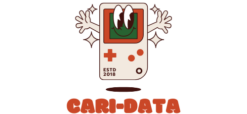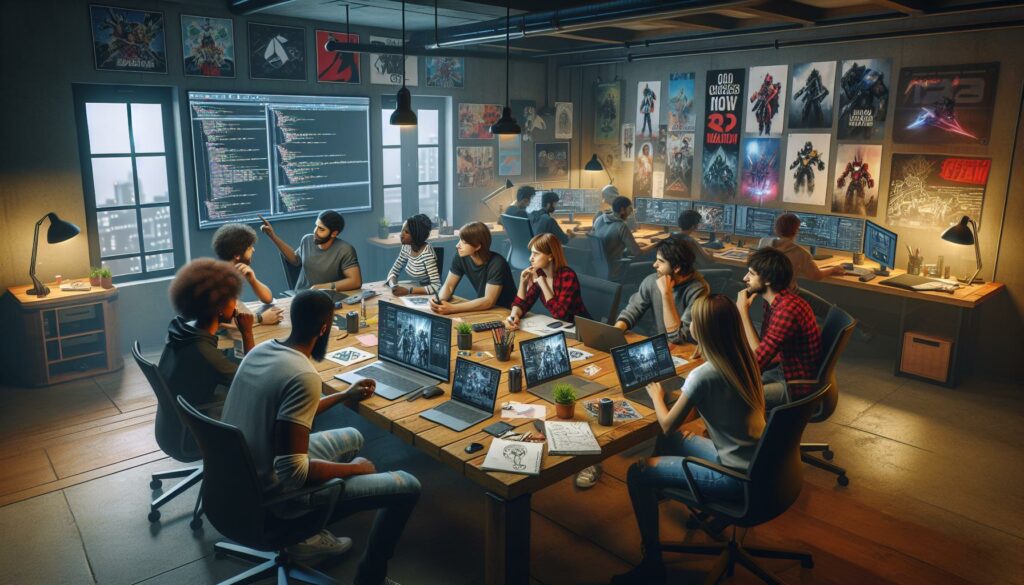As someone who’s spent over a decade in the gaming industry, I’ve witnessed firsthand how finding the right game developers can make or break a project. Whether you’re a startup with a groundbreaking game idea or an established company looking to expand your development team, hiring skilled game developers is crucial for success. Today’s gaming market demands excellence, and working with professional game developers can transform your vision into a polished, engaging experience. I’ve seen countless projects thrive when teams bring in talented developers who understand both the technical aspects and creative elements of game development. Finding these specialists might seem daunting, but I’ll help you navigate the process of hiring the perfect game development talent for your project.
- Game developer hiring comes in three main models: in-house ($8,000-15,000/month), freelance ($50-150/hour), and outsourcing ($3,000-10,000/month), each offering distinct advantages for different project needs.
- Essential technical skills for game developers include proficiency in C++/C#, experience with major game engines (Unity, Unreal), 3D modeling expertise, and strong knowledge of version control systems.
- Top platforms for finding game developers include Upwork (20,000+ developers), Unity Connect (12,000+ certified developers), and specialized marketplaces like GitHub Jobs and ArtStation.
- Effective candidate evaluation requires thorough portfolio assessment, technical interviews with live coding sessions, and verification of both hard and soft skills through structured assessments.
- Remote game development teams rely heavily on specialized tools like Slack/Discord for communication, Jira/Trello for project management, and GitHub/Perforce for version control to maintain productivity across time zones.
Game Developers for Hire
Game developer hiring models shape project outcomes through distinct approaches to talent acquisition deployment. Each model offers unique advantages for different project requirements development scales.
In-House vs. Freelance vs. Outsourcing
In-house developers work as full-time employees within the company location providing dedicated project focus daily collaboration. Freelance developers operate independently accepting specific project tasks through contractual agreements. Outsourcing partners offer complete development teams managed by third-party companies.
Key differences:
- In-house teams enable direct oversight real-time communication immediate project adjustments
- Freelancers provide specialized skills flexible scaling reduced overhead costs
- Outsourcing delivers complete team infrastructure established workflows cost optimization
Cost Structures and Budget Considerations
Development costs vary significantly across hiring models based on engagement duration resource allocation overhead expenses.
| Hiring Model | Monthly Cost Range (USD) | Additional Costs |
|---|---|---|
| In-house | $8,000 – $15,000 | Benefits Insurance Office Space |
| Freelance | $50 – $150 per hour | Project Management Tools |
| Outsourcing | $3,000 – $10,000 | Communication Software |
- Geographic location determines salary ranges market rates
- Experience level affects compensation requirements
- Project scope influences resource allocation duration
- Infrastructure needs vary by development model
- Legal compliance requires different investment levels
Essential Skills to Look for in Game Developers
Game development requires a combination of technical proficiency and creative abilities to create engaging interactive experiences. Based on my experience hiring developers, I’ve identified critical skills that distinguish exceptional talent.
Technical Expertise Requirements
Professional game developers demonstrate mastery in programming languages like C++, C#, and Java for game engine development. Their technical toolkit includes:
- Proficiency in game engines (Unity, Unreal Engine)
- 3D modeling and animation expertise using Maya, Blender or 3DS Max
- Version control systems (Git, Perforce)
- Graphics programming and shader development
- Physics engine implementation
- AI programming for NPCs and game mechanics
- Cross-platform development experience
- Performance optimization techniques
- Network programming for multiplayer games
Soft Skills and Team Collaboration
Top game developers excel in interpersonal abilities that enhance project outcomes:
- Problem-solving approaches for complex gameplay mechanics
- Time management for meeting sprint deadlines
- Communication skills for technical documentation
- Adaptability to changing project requirements
- Creative input during gameplay design discussions
- Conflict resolution in team environments
- Code review participation and feedback integration
- Sprint planning and agile methodology experience
- Documentation creation for maintainable code
- Mentoring junior developers on technical concepts
| Skill Area | Junior Level | Senior Level |
|---|---|---|
| Years of Experience | 1-3 | 5+ |
| Completed Projects | 2-3 | 8+ |
| Programming Languages | 1-2 | 3-5 |
| Game Engine Expertise | Basic | Advanced |
| Leadership Experience | None | Team Lead |
Where to Find Professional Game Developers
Professional game developers populate numerous digital platforms specializing in tech talent acquisition. Based on my decade-long industry experience connecting with developers, I’ve identified the most reliable sources for finding qualified game development professionals.
Top Platforms and Marketplaces
LinkedIn connects employers with 55+ million registered tech professionals, including specialized game developers. Here are the top platforms for finding game development talent:
- Upwork: Features 20,000+ game developers with verified portfolios skill tests
- Unity Connect: Hosts 12,000+ Unity-certified developers seeking project opportunities
- GitHub Jobs: Attracts 40+ million active developers sharing code repositories
- ArtStation: Showcases 3+ million game artists portfolios animations
- Stack Overflow: Engages 14+ million developers through its job board community
- Behance: Displays 25+ million creative portfolios including game designers artists
Game Development Studios and Agencies
Professional game development studios offer comprehensive team solutions for complex projects. Key options include:
- AAA Studios: Ubisoft EA Rockstar Games provide experienced development teams
- Mid-Size Studios: Playrix Supercell focus on mobile casual game development
- Boutique Agencies: Specialized firms handling VR AR indie game projects
- Regional Studios: Local development houses offering face-to-face collaboration
- Game Incubators: Y Combinator TechStars connect startups with talent pools
- Creative Agencies: Digital agencies expanding into interactive game experiences
Each platform marketplace maintains specific verification processes rating systems portfolio requirements. Studios agencies typically require detailed project briefs budgets timelines before engagement discussions.
Evaluating and Screening Potential Candidates
A structured evaluation process identifies qualified game developers who align with project requirements. My experience shows that combining portfolio reviews with technical assessments creates a comprehensive screening framework.
Portfolio Assessment
A developer’s portfolio reveals their technical capabilities through completed projects, code samples, and game demos. I examine these key portfolio elements:
- Project Diversity: Multiple game genres showcase versatility in development approaches
- Code Quality: Clean, well-documented repositories on platforms like GitHub demonstrate coding standards
- Technical Innovation: Custom systems, tools, or gameplay mechanics highlight problem-solving abilities
- Visual Documentation: Screenshots, gameplay videos, and development logs illustrate project scope
- Performance Metrics: Download numbers, user ratings, or commercial success indicators validate market impact
- Role Clarity: Detailed descriptions of responsibilities, team size, and project duration establish experience level
- Live Coding Sessions: 30-minute exercises focusing on game-specific algorithms or systems implementation
- Architecture Discussion: Analysis of previous project structures, design patterns, and optimization techniques
- Engine Proficiency: Hands-on tasks in Unity or Unreal Engine to verify practical skills
- Debug Challenges: Identifying and fixing common game development issues in provided code samples
- Performance Testing: Questions about optimization strategies for different platforms and hardware
- Version Control: Assessment of Git workflow knowledge and collaboration practices
- API Integration: Exercises involving game services, networking, or third-party SDK implementation
| Interview Component | Time Allocation | Focus Areas |
|---|---|---|
| Technical Discussion | 20 minutes | System design, architecture |
| Live Coding | 30 minutes | Algorithms, problem-solving |
| Engine Tasks | 25 minutes | Game-specific implementation |
| Q&A Session | 15 minutes | Project experience, methodology |
Managing Remote Game Development Teams
Remote game development teams require structured communication protocols and clear project management frameworks to maintain productivity and ensure timely delivery. Here’s how I organize remote teams for optimal performance.
Communication Tools and Workflows
Remote game development teams utilize specialized communication tools to maintain seamless collaboration across time zones. Key components include:
- Team Chat Platforms: Slack or Discord for real-time discussions with dedicated channels for art assets gameplay mechanics code reviews
- Video Conferencing: Zoom or Microsoft Teams for daily standup meetings design reviews sprint planning sessions
- Project Management: Jira or Trello for task tracking bug reporting sprint management
- Version Control: GitHub or Perforce for code management asset versioning collaborative development
- Documentation: Confluence or Notion for technical specifications design documents workflow guidelines
- Asset Management: Perforce or PlasticSCM for large file storage version control binary asset management
Project Milestones and Deliverables
Game development milestones follow a structured timeline with specific deliverables at each stage:
| Milestone Phase | Timeline | Key Deliverables |
|---|---|---|
| Pre-production | 2-3 months | Game design document prototype mechanics concept art |
| Alpha | 4-6 months | Core gameplay systems basic UI placeholder assets |
| Beta | 3-4 months | Feature-complete build polished mechanics final art integration |
| Gold | 1-2 months | Bug fixes performance optimization platform compliance |
- Sprint Planning: 2-week cycles with defined objectives story points capacity planning
- Progress Reports: Weekly status updates burndown charts velocity metrics
- Quality Gates: Technical reviews code audits performance benchmarks
- Release Schedules: Platform submission dates certification requirements launch preparations
Finding the right game developers for your project requires careful consideration of multiple factors. Through my years in the industry I’ve learned that success comes from matching skilled professionals with the right hiring model and robust management processes.
I strongly recommend taking time to evaluate candidates thoroughly through technical assessments portfolio reviews and structured interviews. Whether you choose in-house freelance or outsourced talent ensure you have clear communication protocols and project management frameworks in place.
Remember that investing in quality game developers isn’t just about technical skills – it’s about finding professionals who can bring your gaming vision to life while delivering exceptional player experiences. With the right talent and management approach your game project will be positioned for success.


